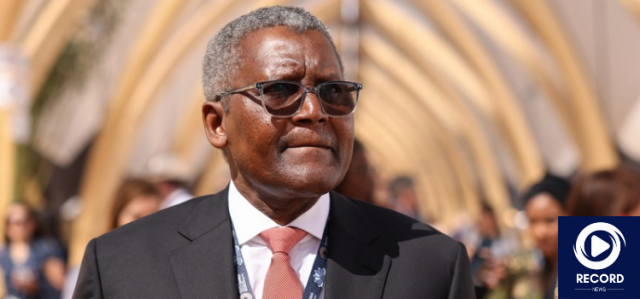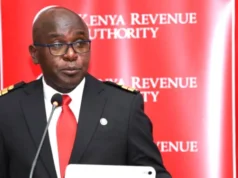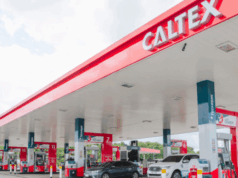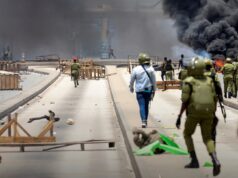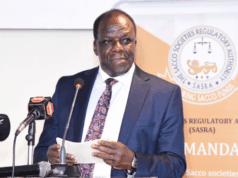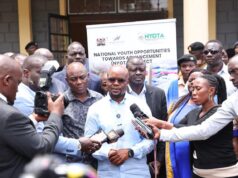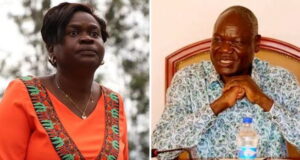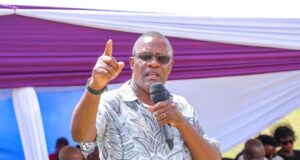Aliko Dangote is not just Africa’s richest man. He is its most industrious and solution oriented entrepreneur. While many wealthy individuals park their billions in luxury and fleeting prestige, Dangote continues to cement his legacy in concrete, crude oil, food production, and fertiliser.
For him, wealth is not a destination, it’s a tool, a lever to move the continent closer to self reliance.Speaking candidly during a tour with members of the Global CEO Africa from Lagos Business School, Dangote raised eyebrows by declaring his doubt that Nigeria’s state run refineries, Port Harcourt, Warri, and Kaduna, would ever function again.
These facilities, he said, have swallowed over 18 billion dollars without a single consistent output. And yet, out of that vacuum, he built the largest single train oil refinery in the world, right in Lekki, Lagos, with a capacity of 650,000 barrels per day. It already dedicates over 50 percent of its output to Premium Motor Spirit (PMS), more than double what government run refineries ever managed.
But for Dangote, it is not just about oil.From food to fuel to fertiliser, his empire spans the full spectrum of what Africa needs to rise. His cement plants dominate the skylines across Nigeria and beyond.
His sugar and salt refineries are household names. And his boldest promise yet, made during the Afreximbank meeting in Abuja, is that “in the next 40 months, Africa will not import fertiliser from anywhere.” His Lagos based 3 billion dollar fertiliser plant, currently running at half capacity, is gearing up for full throttle expansion. A listing on the Nigerian Exchange (NGX) may soon follow, opening the door for broader African ownership of a truly continental asset.Not content with just Nigeria, Dangote’s eyes are firmly set on the continent.
In mid July 2025, he is expected to sign a 3 billion dollar deal with Ethiopia to build a fertiliser plant. That same Ethiopia will also benefit from a 400 million dollar expansion of his Mugher cement facility, which will double its output to 5 million tonnes per year. These are not just numbers, they are futures being written in concrete and granules, lifting agriculture and infrastructure hand in hand.
His impact is also felt beyond the factory gates. In Namibia, he plans a 1.6 million barrel fuel storage tank to serve Botswana, Zambia, Zimbabwe, and Namibia, a move that turns Lekki into the continent’s beating petrochemical heart.His approach is in sharp contrast to the prevailing culture among many wealthy elites.
As he once remarked, “Corruption exists everywhere in the world. The difference is that when our people steal, they fly the money out of the continent. If they continued to invest here, the economy would grow.” Dangote invests here, again and again.
Not in mansions in Dubai or vaults in Switzerland, but in factories that churn out jobs, production lines that power economies, and plants that reduce Africa’s shameful dependence on imports.From cement and salt to trucks and tomatoes, every corner of his empire points to one truth.
This is wealth that works.As Nigeria grapples with economic shocks, currency depreciation, and inflation, Dangote’s wealth has paradoxically soared, not through speculation or hoarding, but through production, risk taking, and long term vision.
He recently reclaimed his spot as Africa’s richest man from South Africa’s Johann Rupert, hitting over 2.4 trillion Kenyan shillings in July 2023. And he did it by building, not just businesses, but hope.
Unlike so many who hoard opportunity and gatekeep capital, Aliko Dangote breaks doors open. His investments are strategic, his methods precise, and his intentions unmistakably pro Africa. His factories employ thousands.
His decisions shift policies. His voice echoes with credibility. He is a businessman who would rather be stuck in a lift talking about power solutions and grain production than profit margins alone.Dangote’s riches are not about status, they are about substance, and that is why he stands apart.


